“A Japanese friend saw the photographs while I was making an edit on my bedroom walls,” White explains. “He thought they seemed to embody the concept so well. I looked into this notion and felt a deep affinity with the sentiment it encapsulates, recognising the beauty within imperfection and the appreciation of flaws.”
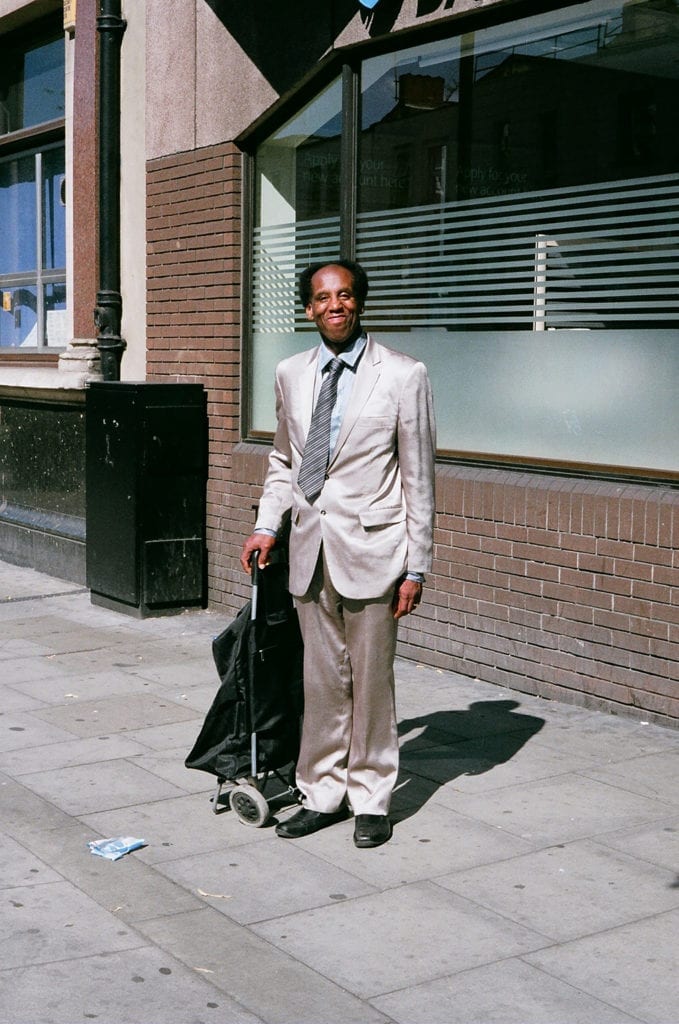
Whether it is a blotch on her lens, or a stranger’s hand reaching for another, White’s playful work catches moments like ticker tape.
Shot on film, they speak to the unpredictable nature of the medium. “I want to learn how to turn mistakes or accidents into opportunity, into optimism,” says White.
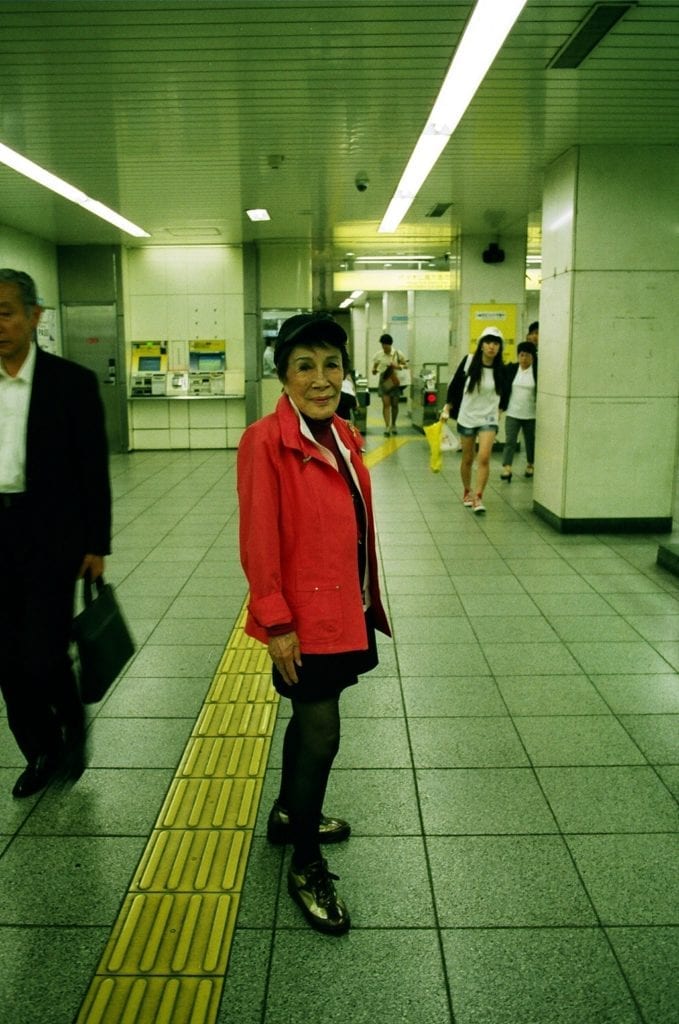
An accidental finger obscuring half the lens would be ruinous for most. For White, however, the image is never half-empty.
In her recent series ‘There’s no time like the present’, White gathers a selection of 35mm negatives shot during her time travelling in both Tokyo and her native England.
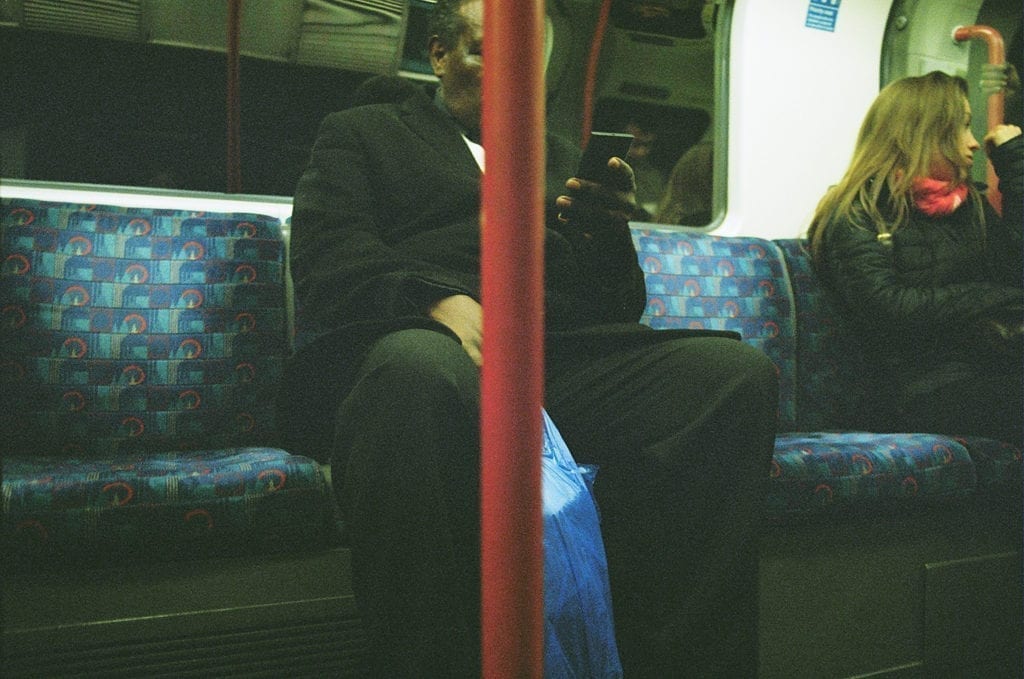
White’s seemingly haphazard approach, however, is not a result of carelessness, but a lesson she had to teach herself early on.
“I was dismayed to discover that the focus on my camera had been broken throughout the night,” White says, recalling the rolls of film she had developed after shooting her favourite band.
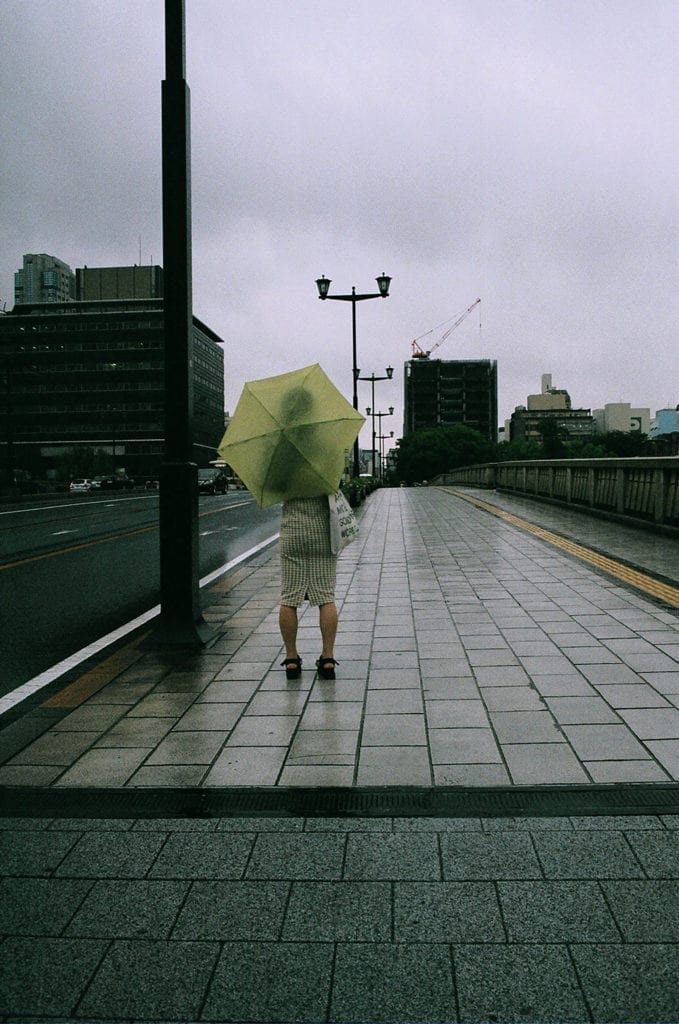
“Everything was out of focus, totally ruined. The ‘magic’ of film had landed me in the shit.” When White returned to the images a few days later, however, she saw something new. “Where most of the images consisted of blurry shapes or foggy darkness, a few were captivating, strange and mysterious.”
These blemish-moments soon became a kind of obsession. Relinquishing perfectionism for wabi-sabi, White continued to explore what she calls “the magical grey area between chance and intention.”
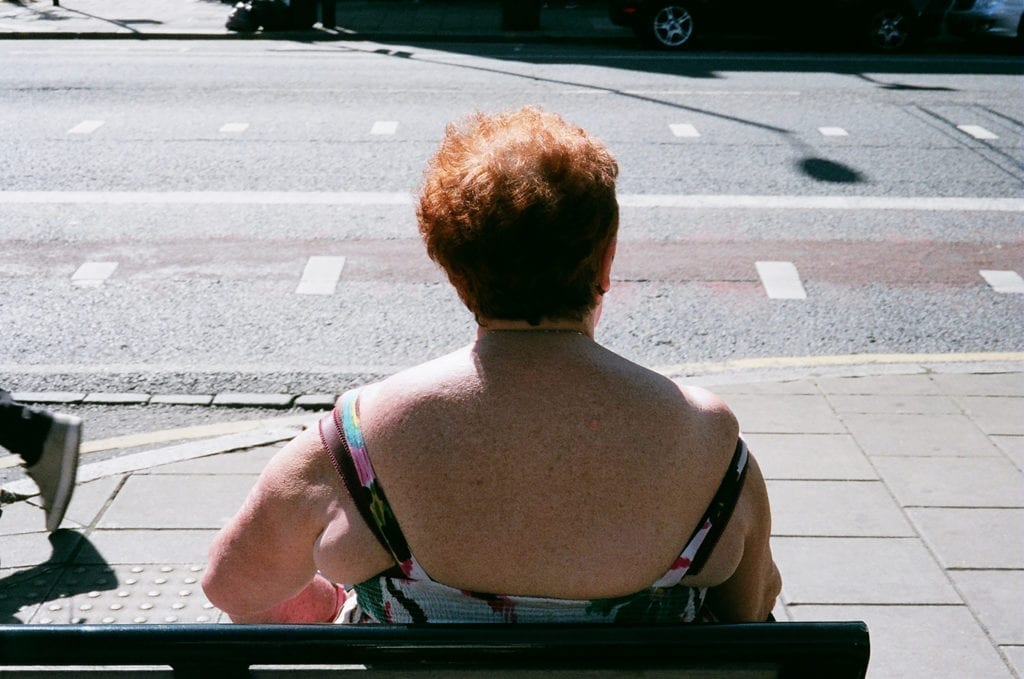
Rarely leaving the house without two film cameras (one carrying colour, the other black and white) and on particularly indecisive days a third, White’s eye began to seek the cracks in everyday life.
“I like surprises, getting lost, meeting strangers,” says White, leafing through the final images she used for her recent exhibition at The University of Westminster’s Freerange show.
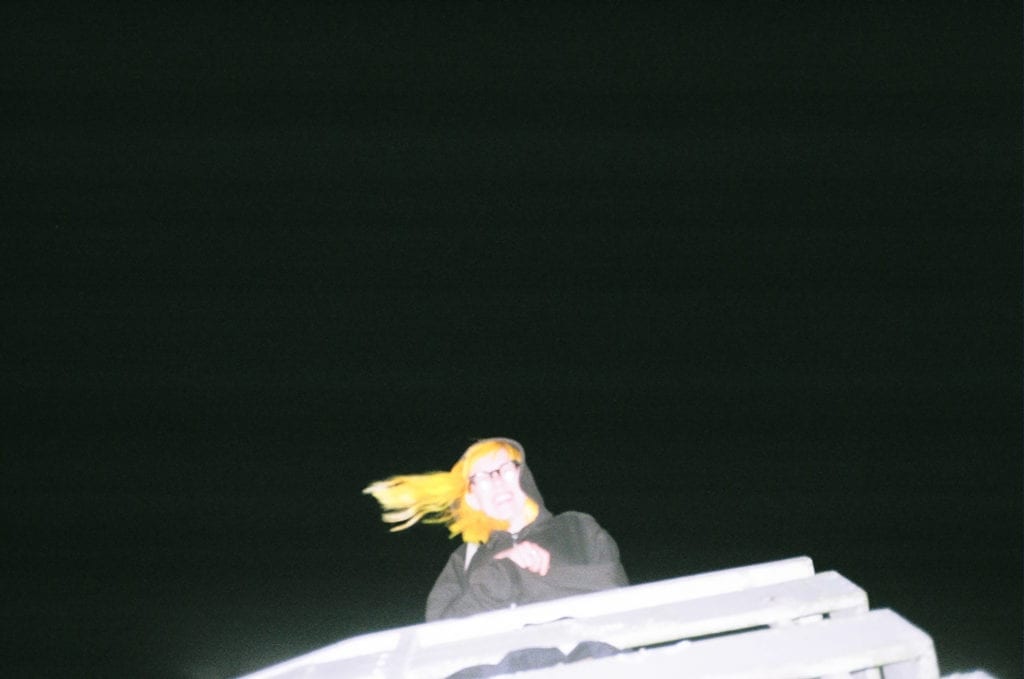
One image in particular caught the organisers’ eyes and was chosen to feature on the promotional poster. The image is a black and white hand gesture – hovering beside an anonymous hip, it suggests a male who is dancing, or speaking in sign.
For White, the image represents a recollection of an otherwise hazy night. “I was staying in Tokyo, in a suburb called Koenji. That particular night I was out drinking in the local izakaya – the Japanese version of the pub. I met 3 Japanese businessmen and they invited me to join them at their table built from beer crates.”
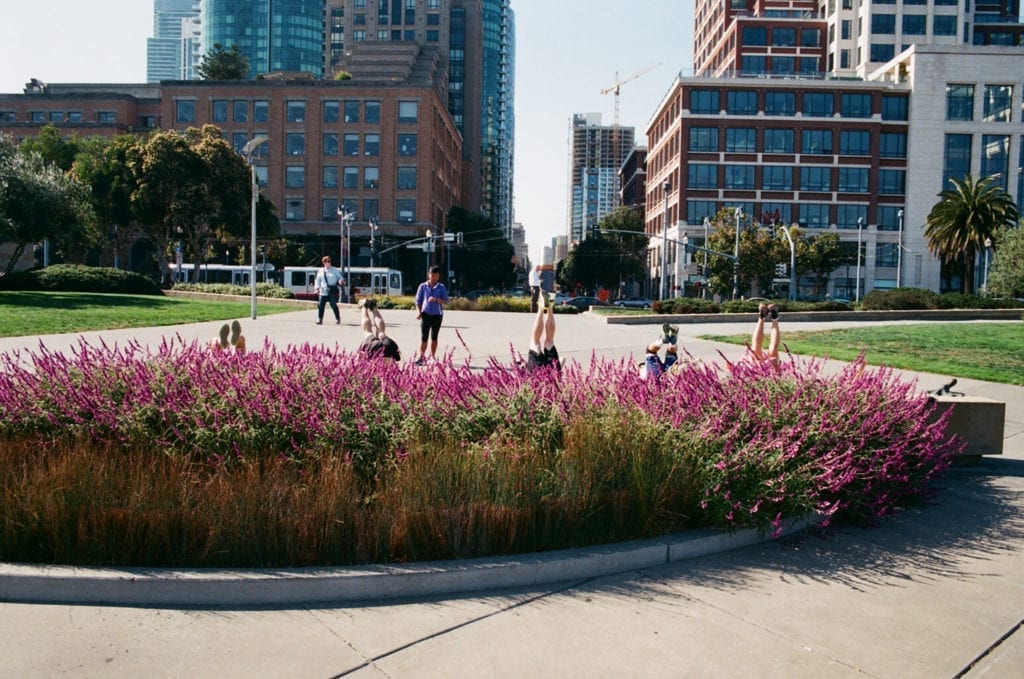
Intrigued that a young lady from London would be travelling alone, taking photos on old cameras, the men shared sake and cigarettes with White who was equally interested in their 14 hour work-hard-play-hard routines.
“We drank and drank and they began to play drinking games, growing ever more animated and loud – laughing at each other, making gestures, ordering rounds of sake.”
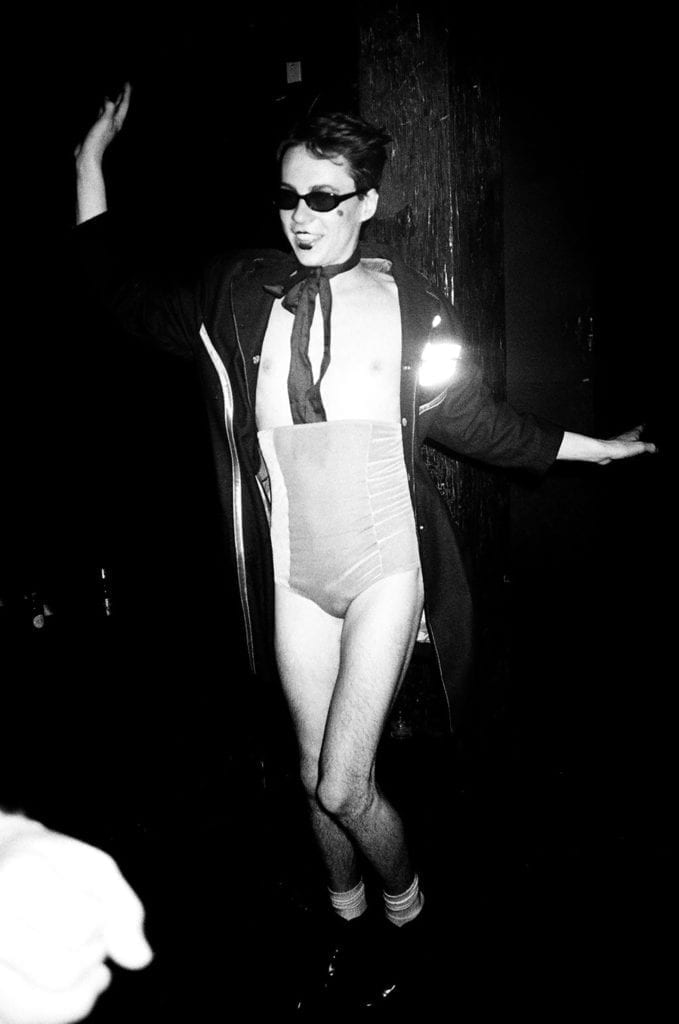
At the cost of a sore head the next day, White collected these fragments of a forgotten night. Revealed to her, later, at home in London. “All I had left of these strangers whose names I don’t remember are their ‘meishi’- their business cards (everyone gives you one in Japan) and this set of photographs I barely remember taking.”
“The ‘unsightly’ stain of a light leak blemish, incorrect focal length, film not winding on or quite simply the outside world behaving as it pleases.” These have all become wabi-sabi to White. Celebrating the imperfections in everyday life, she now rejoices in the light bleeding orange onto her film, across her subject’s torso. A smashed brick wall is no longer evidence of an accident, but a kind of symbol of impermanence.
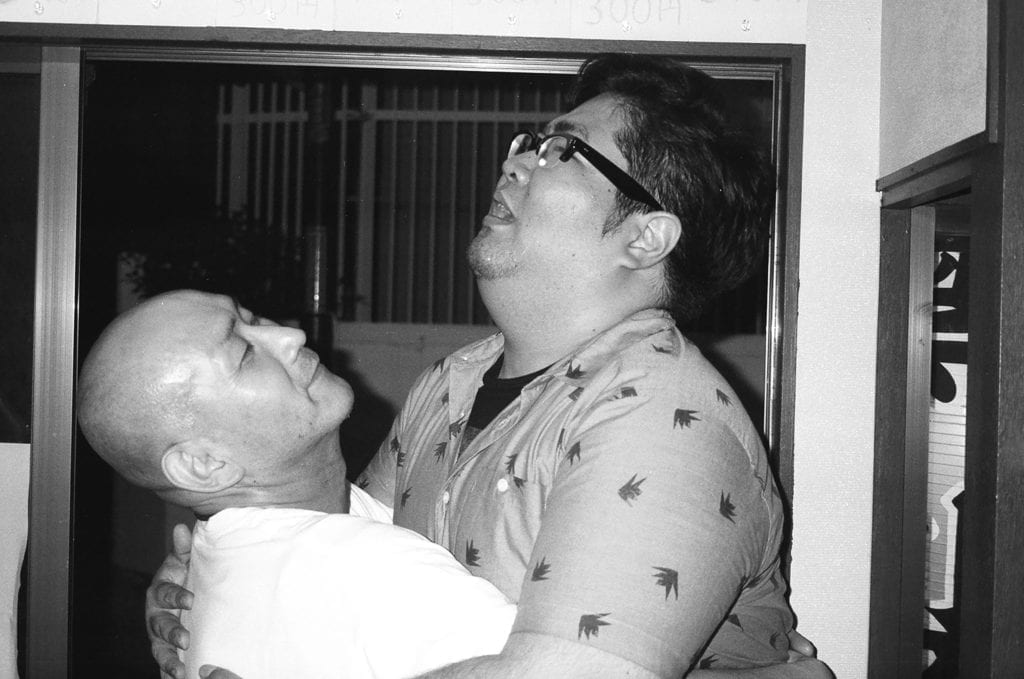
White’s approach – at odds to the fine-tuned, manufactured, digital age – also reflects her ethics. “The way I choose to live relates to analogue images so much more comfortably than to the streamlined retouched world of digital technology. I don’t like perfection or the strive towards it – I think it’s a dangerous desire and one that makes people afraid of their own humanisms, in denial of their own flawed body and mind.”
White feels a great urge to return to Tokyo for a longer amount of time. “Hopefully within a year or so I will be back in Japan having some more adventures and meeting some more wonderful strangers- capturing whatever crosses my path.”
See more of Sarah’s work here.
